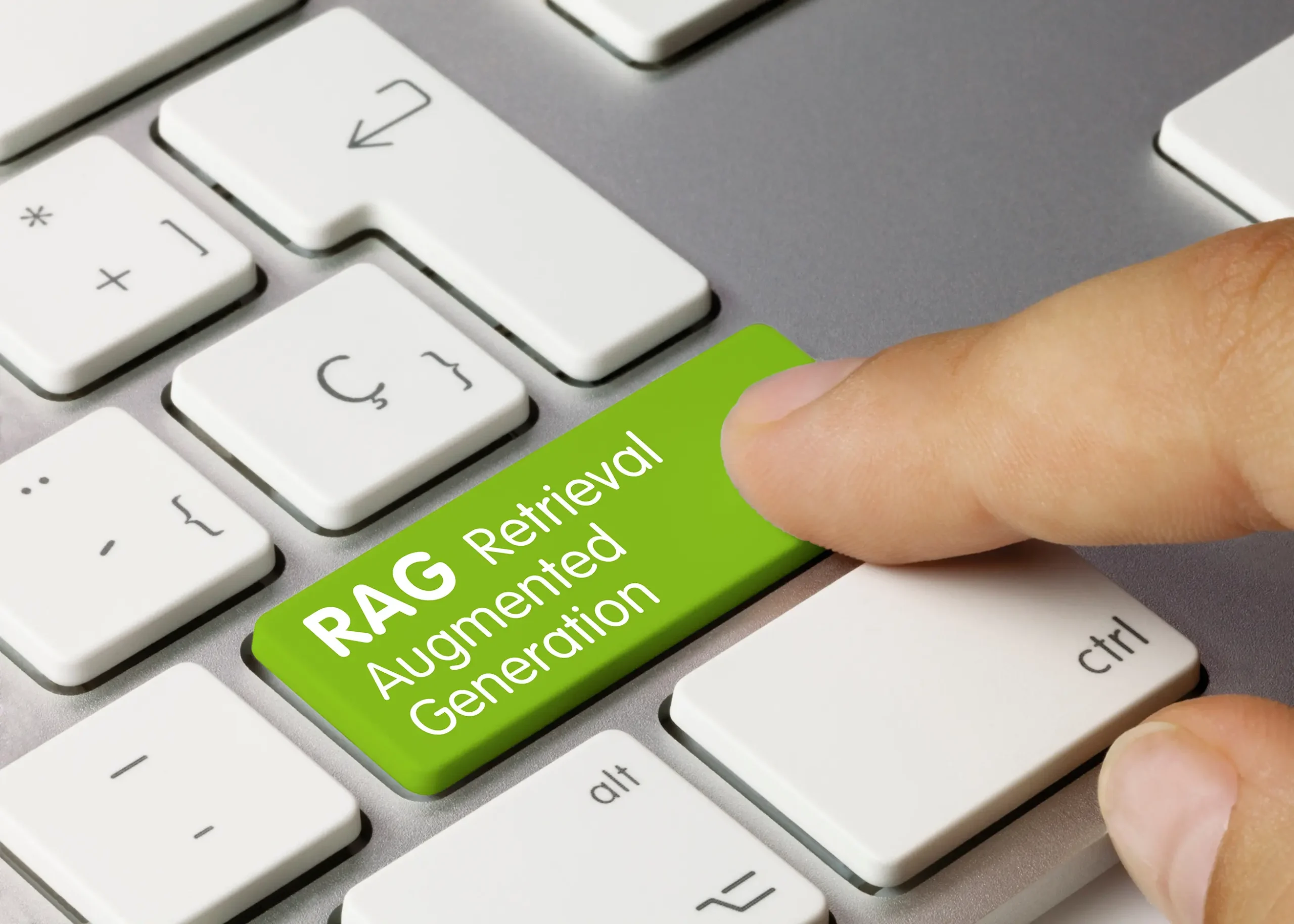You probably remember the rules prohibiting misleading statements and solicitation from your law school professional responsibility classes and MPRE prep. However, when was the last time you or your law firm took a good look at your state’s attorney advertising rules?
As digital marketing has become one of the primary ways lawyers reach prospective clients, the potential for violations has increased. If your marketing partners don’t understand and continually monitor your state bar’s approach to legal advertising, you might find yourself facing sanctions or disciplinary action.
In this article, the LaFleur team outlines some of the biggest compliance challenges that law firms face and suggests ways to improve your marketing efforts.
Marketing Compliance Is Challenging, Especially for Multi-State Law Firms
If you look at the American Bar Association’s Model Rules of Professional Conduct, the advertising rules seem blissfully simple. In practice, lawyers must navigate a tangle of rules, including state rules of professional responsibility, bar association advisory opinions, and even rulings from the Federal Trade Commission (FTC) and other regulators.
This task is even more daunting if your law firm practices in multiple states, since many of them have different approaches to legal marketing and advertising.
We know that you’d rather spend your time litigating cases, not tracking every jurisdiction’s attorney advertising rules. While nothing compares to a customized audit your marketing content and plan, let’s explore some high-level issues you need to consider.
RELATED: Is It Time to Audit Your Regulated Business’ Marketing Compliance?
Stick to the Facts and Don’t Make Promises You Can’t Keep
Lawyers should never make false or misleading statements in their advertising. While this is probably the most widely understood attorney advertising rule, you might have missed some of its nuances. In most states, you cannot:
- Advertise for areas of practice that you do not or will not handle
- Imply or overtly guarantee success to potential clients
- Insinuate that you have a special advantage due to your relationships or connections to judges or other attorneys
- Suggest that you will represent individuals before you review their claims
- Publish non-verifiable statements, such as “the most respected law firm in Cleveland, Ohio,” or make unsubstantiated comparisons between your law firm and your competitors
To avoid any unnecessary violations, we recommend you follow the advice that you give your clients and keep your statements honest and accurate.
Additionally, legal consumers are increasingly sophisticated, and they’re less likely to accept your “world’s best lawyer” claims than they used to be. Rather than telling them how awesome you are, show them. Client success stories and testimonials (if allowed by your state bar) are much more powerful method of demonstrating your expertise than lavishing yourself with superlatives.
To avoid any unnecessary violations, we recommend you follow the advice that you give your clients and keep your statements honest and accurate.
Understand Your State Bar’s Approach to Words Like “Expert” and “Specialization”
Every state takes a different approach to discussing legal specializations and expertise, and you need to understand your bar association’s requirements. For example:
- Alabama: You cannot state or imply that they are a “specialist” or “specialize in” a specific practice unless you are admitted to practice before the U.S. Patent and Trademark Office, engaged in an admiralty practice, or have earned a certification from a bar-approved organization.
- California: While you can say you “specialize” in a specific area of law, you cannot indicate that you’re a certified specialist unless you’ve completed a bar-accredited program.
- Michigan: While the terms “expert” or “specialist” are not explicitly addressed, the rules of professional conduct prohibit misleading statements.
- Virginia: Whether you are a specialist by experience, training, or education, you may use this terminology. However, you cannot make false or misleading statements about your practice or expertise.
No matter what state you practice in, you should never imply that you’re certified in an area of practice unless you have an accredited or approved board certification.
While consumers appreciate board certifications, you should also demonstrate your knowledge and expertise through thought leadership. Comprehensive blogs, client stories, and videos will build trust more easily than simply calling yourself a specialist.
Video is a particularly powerful tool when you want to prove your expertise. For many, seeing is believing. If you produce content-rich videos that answer your clients’ frequently asked questions and translate difficult concepts into plain English, your audience is much more likely to consider you the community’s go-to attorney.
Be Careful When You’re Discussing Your Results
Everyone wants to celebrate their biggest settlements and jury awards. However, your bar association might frown upon sharing those astonishing numbers with the public.
Generally speaking, when you discuss settlements, verdicts, or share client success stories, you must:
- Offer objectively verifiable information that isn’t misleading
- Provide context and disclose specific circumstances that lead to a higher-than-expected recovery (such as a default judgment)
- Publish a disclaimer noting that past results are not a guarantee of success
In some states, you must also publish your clients’ net recovery after paying their attorney’s fees and costs.
Different States Take Different Stances About Client Reviews and Testimonials
Testimonials and client reviews build social proof and are a powerful marketing tool. While some states, like Indiana, once prohibited the use of client testimonials in advertising, most state bars now allow them—with limitations. For example, you cannot publish false or misleading testimonials, and many states require disclaimers when you post client’s reviews or endorsements.
Florida’s testimonial rules are particularly rigorous:
- Non-lawyers are not qualified to comment on your legal skills, although they can discuss their satisfaction with your services or talk about their client experience.
- You cannot write, draft, or edit your clients’ testimonials. (Even offering a template for reviews is frowned upon.)
- When you publish a testimonial, it must be representative of your clients’ typical experience.
- You must include a disclaimer indicating that past results are not a guarantee of success.
- You cannot offer anything of value in exchange for a client’s review.
Other states, including New York, permit you to offer a modest fee reduction in exchange for a rating on a third-party website (like Avvo). However, you must provide the discount whether they give a positive or negative rating.
Social Media “Likes” and Compensation
Several states, including North Carolina and Wisconsin, have prohibited or discouraged certain social media promotions. These states consider a like, comment, or share to be an endorsement—acknowledging the power and influence of social media. If you run a contest where someone might win a prize in exchange for their like, share, comment, or social media review, it could violate your state’s ethics rules (since it’s unethical to offer something valuable in exchange for an endorsement).
Before you run a “likes” contest, you should double-check your bar association’s stance on these promotions, or even request an ethics opinion as a CYA.
Use Spokespersons, Actors, and Simulations With Caution
We’ve been pushing you to “show, not tell,” for most of this blog. However, if you’re using actors, spokespersons, or reenactments, you might run afoul of your state’s rules of professional conduct. Many states require clear disclaimers or prohibit law firms from using non-attorney spokespersons or actors who simulate clients or attorneys.
Make sure you always submit your television and CTV ads to your state bar association for approval. And you shouldn’t wait until the last moment to do so—the advertising review process can be time-intensive and bar associations typically request changes and edits to ads.
Be Mindful of Confidential Information and Social Media
Did you know that “checking in” to a courthouse on Facebook or Instagram might be an improper disclosure of a client’s information? ABA Model Rule 1.6 (and state rules that are modeled after it) require that you obtain informed consent before you disclose a client’s information. So, you shouldn’t post your location before a hearing, celebrate a successfully defended motion for summary judgment, or share a vague story about your client on your LinkedIn or Facebook account without their permission.
Additionally, your comments about a case on a social media platform must comply with your bar association’s rules on trial publicity. Before you hit “post,” ask yourself if the disclosure could materially impact the case, is deceptive, or would violate a court order.
RELATED: Mistakes to Avoid With Law Firm Social Media Marketing
Mass Tort Advertising and the FTC
Technically, the Federal Trade Commission’s warnings about mass tort marketing are supplemental to your state’s rules of professional responsibility. But they are worth noting and following.
In 2019, the FTC sent letters to multiple mass tort law firms and their lead generation partners, advising them that their ads were deceptive. Specifically, the commission noted that there increasing reports of consumers improperly stopping prescribed medications because of pharmaceutical mass tort campaigns. Many of these ads framed themselves as “alerts,” flashed FDA logos, and otherwise implied that they were offering medical advice.
Personally, we think these types of TV ads are sloppy and perpetuate negative stereotypes about personal injury lawyers. They’re also unethical. If you’re interested in mass tort advertising, do yourself a favor and build factually accurate ads that speak to your clients and their concerns, rather than shouting scare tactics at them.
We’ve had good results building empathetic, fact-based mass tort campaigns, and we’d love to show you better options.
RELATED: Digital Accessibility and ADA Compliance
At the End of the Day, You’re Responsible for Your Marketing Compliance
It’s easy to assume that your marketing agency is monitoring all these minute details. Unfortunately, not every marketing agency tracks rule changes and ethics opinions. Even worse, some are oblivious to your ethical obligations.
However, if Bar Association violations occur, you are responsible for them—not the marketing agency.
Don’t hesitate to ask your marketing partners about their compliance systems and approach to the rules of professional responsibility. Do they monitor evolving ethical issues? Do they have experience submitting proposed campaigns to advertising review boards? Or do they expect you to keep them up to date on your state bar’s rules and regulations?
However, if Bar Association violations occur, you are responsible for them—not the marketing agency.
LaFleur: We Take Marketing Compliance Seriously
We see ourselves as our clients’ partners, not a service provider that simply churns out content and advertising campaigns. That’s why LaFleur carefully reviews and follows their state’s rules of professional conduct. We do our best to identify evolving ethical challenges and build marketing compliance strategies to meet them.
If you’re concerned about your law firm’s marketing compliance, complete our online form or call us at (888) 222-1512. We’re ready to answer your questions and audit your website and marketing campaigns.
References
2019 Formal Ethics Opinion 6. (2019). North Carolina State Bar. Retrieved from https://www.ncbar.gov/for-lawyers/ethics/adopted-opinions/2019-formal-ethics-opinion-6/
Alabama Rules of Professional Conduct, R. 7.4. (1994). https://judicial.alabama.gov/docs/library/rules/cond7_4.pdf
California Rules of Professional Conduct. R. 7.4. (2018). Retrieved from http://www.calbar.ca.gov/Portals/0/documents/rules/Rule_7.4-Exec_Summary-Redline.pdf
Florida Rules of Professional Conduct. (2020). Retrieved from https://www-media.floridabar.org/uploads/2021/03/Ch-4-2021_06-DEC-RRTFB-Arial-14-12-4-2020.pdf
FTC Flags Potentially Unlawful TV Ads for Prescription Drug Lawsuits. (2019, September 24). Federal Trade Commission. Retrieved from https://www.ftc.gov/news-events/press-releases/2019/09/ftc-flags-potentially-unlawful-tv-ads-prescription-drug-lawsuits?utm_source=govdelivery
Michigan Rules of Professional Conduct. R. 7.4. (2020). Retrieved from https://courts.michigan.gov/courts/michigansupremecourt/rules/documents/michigan%20rules%20of%20professional%20conduct.pdf
Pierce, T. (2019, December 18). Ethical Dilemma: Are Social Media Incentives Allowed? State Bar of Wisconsin. Retrieved from https://www.wisbar.org/NewsPublications/InsideTrack/Pages/Article.aspx?Volume=11&Issue=22&ArticleID=27393
Virginia Rules of Professional Conduct. R. 7.1. (2017). Retrieved from http://www.vsb.org/pro-guidelines/index.php/rules/information-about-legal-services/rule7-1/
The content provided here is for informational purposes only and should not be construed as legal advice on any subject.





